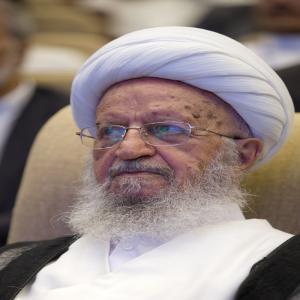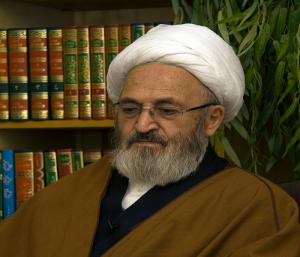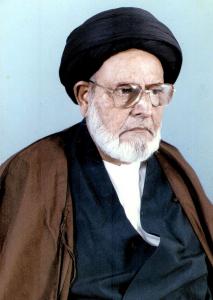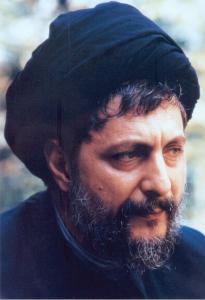Religions and Sects
Nationalism and Islam: Clash or Reconciliation?
- Published at
-
- Author:
- Sayyid Ahmad Rahnamaei

The phenomenon of ‘nationalism in religion’ according to S. W. Baron is considered to be an obstacle that prevents religion from fulfilling its role in human life. The necessary balance between organized humanity’s social responsibility and the right of each state would be gained through organized religion.
The Five Schools of Islamic Thought
- Published at
-
- Author:
- Sayyid Moustafa Al-Qazwini
- Source:
- www.al-islam.org
 Schools of Islamic thought (madhahib) are the paths people follow to the Noble Qur’an and Prophet Muhammad. Obviously, these schools of thought were founded considerably after the death of the Prophet;
Schools of Islamic thought (madhahib) are the paths people follow to the Noble Qur’an and Prophet Muhammad. Obviously, these schools of thought were founded considerably after the death of the Prophet;
A Call for Muslim Unity
- Published at
-
- Author:
- Sayyid Moustafa Al-Qazwini
- Source:
- www.al-islam.org
 Discussing historical facts or jurisprudential differences should not in any way discourage Muslim unity, since the majority of Muslim historians from all schools of thought agree on similar historical facts.
Discussing historical facts or jurisprudential differences should not in any way discourage Muslim unity, since the majority of Muslim historians from all schools of thought agree on similar historical facts.
The Role of Religion in the Formation of the “Ummah Wahida”
- Published at
-
- Author:
- Sayyid Ahmad Rahnamaei
 Ever since Islam was first revealed, Muslims have been encouraged to live together and to work towards establishing a single Muslim nation embracing all Muslims around the world. The Qur’an, in explaining the role of the prophets, goes beyond the concept of one Muslim nation and explains how humankind used to be one community, but because of internal disputes became divided: (All) people were a single nation, so Allah raised prophets as bearers of good tidings and as warners; and with them He revealed book with the truth, so that it might judge between people in that in which they differed and struggled; and none but the very people who were given the book, after clear signs (and arguments) had come to them, differed about it, due to their selfish contumacy.
Ever since Islam was first revealed, Muslims have been encouraged to live together and to work towards establishing a single Muslim nation embracing all Muslims around the world. The Qur’an, in explaining the role of the prophets, goes beyond the concept of one Muslim nation and explains how humankind used to be one community, but because of internal disputes became divided: (All) people were a single nation, so Allah raised prophets as bearers of good tidings and as warners; and with them He revealed book with the truth, so that it might judge between people in that in which they differed and struggled; and none but the very people who were given the book, after clear signs (and arguments) had come to them, differed about it, due to their selfish contumacy.
What does Islam say about Jesus?
- Published at
-
- Author:
- Imam Reza Network
 In the Qur'an, stories about the life and teachings of Jesus Christ (called 'Isa in Arabic) are abundant. The Qur'an recalls his miraculous birth, his teachings, the miracles he performed by God's permission, and his life as a respected prophet of God.
In the Qur'an, stories about the life and teachings of Jesus Christ (called 'Isa in Arabic) are abundant. The Qur'an recalls his miraculous birth, his teachings, the miracles he performed by God's permission, and his life as a respected prophet of God.
Are Other Religions Right?
- Published at
-
- Author:
- Shaykh Nasir Makarim Shirazi & Ayatullah Ja'far Subhani
 Question: Since Islam had canceled all other religious, in some verses of Qur’an why does it considers all the people and communities of the world - whether Muslims, Jews and Christians etc. if they believe in Allah and do virtuous deeds they are people of salvation and says: whoever believes in Allah and the Last day and does good, they shall have their reward from their Lord, and there is no fear for them, nor shall they grieve.
Question: Since Islam had canceled all other religious, in some verses of Qur’an why does it considers all the people and communities of the world - whether Muslims, Jews and Christians etc. if they believe in Allah and do virtuous deeds they are people of salvation and says: whoever believes in Allah and the Last day and does good, they shall have their reward from their Lord, and there is no fear for them, nor shall they grieve.
Islam and Racial Superiority
- Published at
-
- Author:
- Ayatullah Ja`far Subhani
 {O’ Humanity! Without doubt We have created you from a male and a female and have made you into various nations and tribes, so that you may come to know and understand one another. Definitely the most honoured among you in the sight of Allah is the one who is the most Allah-Consciousness. Surely Allah has full Knowledge and is All-Aware.}
{O’ Humanity! Without doubt We have created you from a male and a female and have made you into various nations and tribes, so that you may come to know and understand one another. Definitely the most honoured among you in the sight of Allah is the one who is the most Allah-Consciousness. Surely Allah has full Knowledge and is All-Aware.}
The Bliss of Paradise or the tortures of Hell
- Published at
-
- Author:
- Sayyid Saeed Akhtar Rizvi
 First: As Resurrection will be of body and soul together, the Reward and Punishment will have to cover both. In other words, Paradise and Hell will provide physical comforts and tortures respectively as well as the spiritual ones.
First: As Resurrection will be of body and soul together, the Reward and Punishment will have to cover both. In other words, Paradise and Hell will provide physical comforts and tortures respectively as well as the spiritual ones.
History of the Khoja Shia Ithna Ashari Shia Muslims
- Published at
-
- Author:
- Imam Reza Network
 Some 600 years ago a missionary by the name of Pir Sadruddin arrived in Sind in India. There are a number of myths about his origins. The most common consensus among historians is that he was Dai (representative or emissary) of the Nizari branch of the Ismaili sect. Some have suggested that he was a Sufi teacher from Iran. There is even a story that he was a Hindu priest by the name Sahdev who had been caught stealing in the temple and hence disgraced and defrocked. He then left the temple, changed his appearance and took on the name of Sadr Din.
Some 600 years ago a missionary by the name of Pir Sadruddin arrived in Sind in India. There are a number of myths about his origins. The most common consensus among historians is that he was Dai (representative or emissary) of the Nizari branch of the Ismaili sect. Some have suggested that he was a Sufi teacher from Iran. There is even a story that he was a Hindu priest by the name Sahdev who had been caught stealing in the temple and hence disgraced and defrocked. He then left the temple, changed his appearance and took on the name of Sadr Din.
Islam, Humanity and Human Values
- Published at
-
- Author:
- Ayatullah Sayyid Musa Sadr
 A definition of humanity seems easy to think of yet difficult to propose, and there have been disputes about it among different schools of thought. Most pioneers in social thought and leaders of movements claim that the main feature of their activities is their humanism and humanitarian efforts. To avoid having misconceptions about humanity or sinking in the whirlpool of literal interpretations and logical disputes, we need to first focus on the reality of the human being and his different aspects, and then discuss the derived infinitive word form humanity, its meaning, virtues, and functions.
A definition of humanity seems easy to think of yet difficult to propose, and there have been disputes about it among different schools of thought. Most pioneers in social thought and leaders of movements claim that the main feature of their activities is their humanism and humanitarian efforts. To avoid having misconceptions about humanity or sinking in the whirlpool of literal interpretations and logical disputes, we need to first focus on the reality of the human being and his different aspects, and then discuss the derived infinitive word form humanity, its meaning, virtues, and functions.
Questions of an American Muslim
- Published at
-
- Author:
- Shaykh Nasir Makarim Shirazi & Ayatullah Ja'far Subhani
 Sometime ago an American Muslim had sent us a lot of questions most of whom were informative. Therefore we shall mention the fifteen questions and their replies as follows:
Sometime ago an American Muslim had sent us a lot of questions most of whom were informative. Therefore we shall mention the fifteen questions and their replies as follows:
Islamic View on Artificial Insemination
- Published at
-
- Author:
- haykh Nasir Makarim Shirazi & Ayatullah Ja'far Subhani
 Question: What is the Islamic view on Artificial Insemination? (Artificial Insemination means the insertion of sperm into the woman's uterus through special means).
Question: What is the Islamic view on Artificial Insemination? (Artificial Insemination means the insertion of sperm into the woman's uterus through special means).
Factors for Islamic Unity
- Published at
-
- Author:
- Seyyed Ali Shahbaz
 Today on the start of the Islamic Unity Week that spans the two days of the month of Rabi al-Awwal (12 and 17), believed by the two principal groups of Muslims to be the birth anniversary of the “Mercy unto the creation” we ought to ponder on the Revealed Word of God as well as the Prophet’s Sunnah and Seerah, in order not to be splintered at a time when the enemies of humanity are trying to sow the seeds of discord among us.
Today on the start of the Islamic Unity Week that spans the two days of the month of Rabi al-Awwal (12 and 17), believed by the two principal groups of Muslims to be the birth anniversary of the “Mercy unto the creation” we ought to ponder on the Revealed Word of God as well as the Prophet’s Sunnah and Seerah, in order not to be splintered at a time when the enemies of humanity are trying to sow the seeds of discord among us.
Elegy-Recitation by Shi‘ah Poets
- Published at
-
- Author:
- Ghulam-Husayn Muharrami
 Another important arena about which the Shi‘ah poets have recited poetry and delivered speeches extensively is the commemoration of the tragedy experienced by the descendants of the Prophet (S) and elegy-recitation for the martyrs among them. This arena came into being after the martyrdom of Imam al-Husayn (‘a) in 61 AH. In this regard, two parts may be discussed and examined:
Another important arena about which the Shi‘ah poets have recited poetry and delivered speeches extensively is the commemoration of the tragedy experienced by the descendants of the Prophet (S) and elegy-recitation for the martyrs among them. This arena came into being after the martyrdom of Imam al-Husayn (‘a) in 61 AH. In this regard, two parts may be discussed and examined:
The Sincere Shia
- Published at
-
- Author:
- Shaykh Nasir Makarim Shirazi
 Imam Ja’far b. Muhammad as-Sadiq (as) has said: “Surely our Shi’a (true followers) are those who follow our virtues (those who follow all of the good and noble practices which we have established and left behind - our Sunnah) and who obey us in all of the things which we command towards and which we prohibit - surely these people are our Shi’a. However, as for those who go against us in most of the things which Allah has made obligatory upon him, they are not our Shi’a.”
Imam Ja’far b. Muhammad as-Sadiq (as) has said: “Surely our Shi’a (true followers) are those who follow our virtues (those who follow all of the good and noble practices which we have established and left behind - our Sunnah) and who obey us in all of the things which we command towards and which we prohibit - surely these people are our Shi’a. However, as for those who go against us in most of the things which Allah has made obligatory upon him, they are not our Shi’a.”
The Demographic Concentration of the Shi‘ah
- Published at
-
- Author:
- Ghulam-Husayn Muharrami
 As stated earlier, during the first three centuries AH, the Shi‘ah were scattered across and living in many parts of the Muslim lands. Yet, the demographic concentration and center of the Shi‘ah were in certain regions, which during the first century AH were places such as Medina, Yemen, Kufah, Basrah, Mada’in, and Jabal ‘Amil.
As stated earlier, during the first three centuries AH, the Shi‘ah were scattered across and living in many parts of the Muslim lands. Yet, the demographic concentration and center of the Shi‘ah were in certain regions, which during the first century AH were places such as Medina, Yemen, Kufah, Basrah, Mada’in, and Jabal ‘Amil.
The Geographical Expansion of Shi‘ism
- Published at
-
- Author:
- Ghulam-Husayn Muharrami
 It is certain that the first center of Shi‘ism had been the city of Medina and the pioneering Shi‘ah among the companions {sahabah} of the Prophet (S) lived in that city. During the reign of the first three caliphs, the Shi‘ah sahabah were scattered in the different cities and regions, with some of them holding political and military positions.
It is certain that the first center of Shi‘ism had been the city of Medina and the pioneering Shi‘ah among the companions {sahabah} of the Prophet (S) lived in that city. During the reign of the first three caliphs, the Shi‘ah sahabah were scattered in the different cities and regions, with some of them holding political and military positions.
Shi‘ism among the Different Tribes
- Published at
-
- Author:
- Ghulam-Husayn Muharrami
 Basically, ‘Ali (‘a) had more Shi‘ah and sympathizers from the ‘Adnanis from among the Qahtani tribes, and Shi‘ism among the Qahtanis had enormously expanded. The main Shi‘ah who constituted the historians and soldiers of the Commander of the Faithful (‘a) were Arab tribes from the south (Yemen) and Qahtanis. For instance, the Imam (‘a) thus said in Rajzi, one of the battle arenas in Siffin:
Basically, ‘Ali (‘a) had more Shi‘ah and sympathizers from the ‘Adnanis from among the Qahtani tribes, and Shi‘ism among the Qahtanis had enormously expanded. The main Shi‘ah who constituted the historians and soldiers of the Commander of the Faithful (‘a) were Arab tribes from the south (Yemen) and Qahtanis. For instance, the Imam (‘a) thus said in Rajzi, one of the battle arenas in Siffin:
The Greatness of the Shia
- Published at
-
- Author:
- Shaykh Nasir Makarim Shirazi
 Our ethical discussion today is a continuation of the topic on the Greatness of the Shia( فضائل الشيعة ). The late 'Allamah Majlisi has presented a very detailed discussion in relation to both the Greatness of the Shia (فضائل الشيعة) and the Characteristics of the Shia ( صفات الشيعة ) and he narrates many traditions in regards to these two issues.
Our ethical discussion today is a continuation of the topic on the Greatness of the Shia( فضائل الشيعة ). The late 'Allamah Majlisi has presented a very detailed discussion in relation to both the Greatness of the Shia (فضائل الشيعة) and the Characteristics of the Shia ( صفات الشيعة ) and he narrates many traditions in regards to these two issues.
Brotherhood in Islam
- Published at
-
- Author:
- Ayatullah Ja`far Subhani
 The closest relationship and bond that can take place between two people during the course of their lifetime is that of brotherhood. Although the relationship between a father and his children is much stronger and powerful than the ties of brotherhood, however this relationship (between a father and his child) is one in which the two people are not on an equal level – from the point of view of time, situation, character and the level of respect (that they must show one another), they are different.
The closest relationship and bond that can take place between two people during the course of their lifetime is that of brotherhood. Although the relationship between a father and his children is much stronger and powerful than the ties of brotherhood, however this relationship (between a father and his child) is one in which the two people are not on an equal level – from the point of view of time, situation, character and the level of respect (that they must show one another), they are different.


